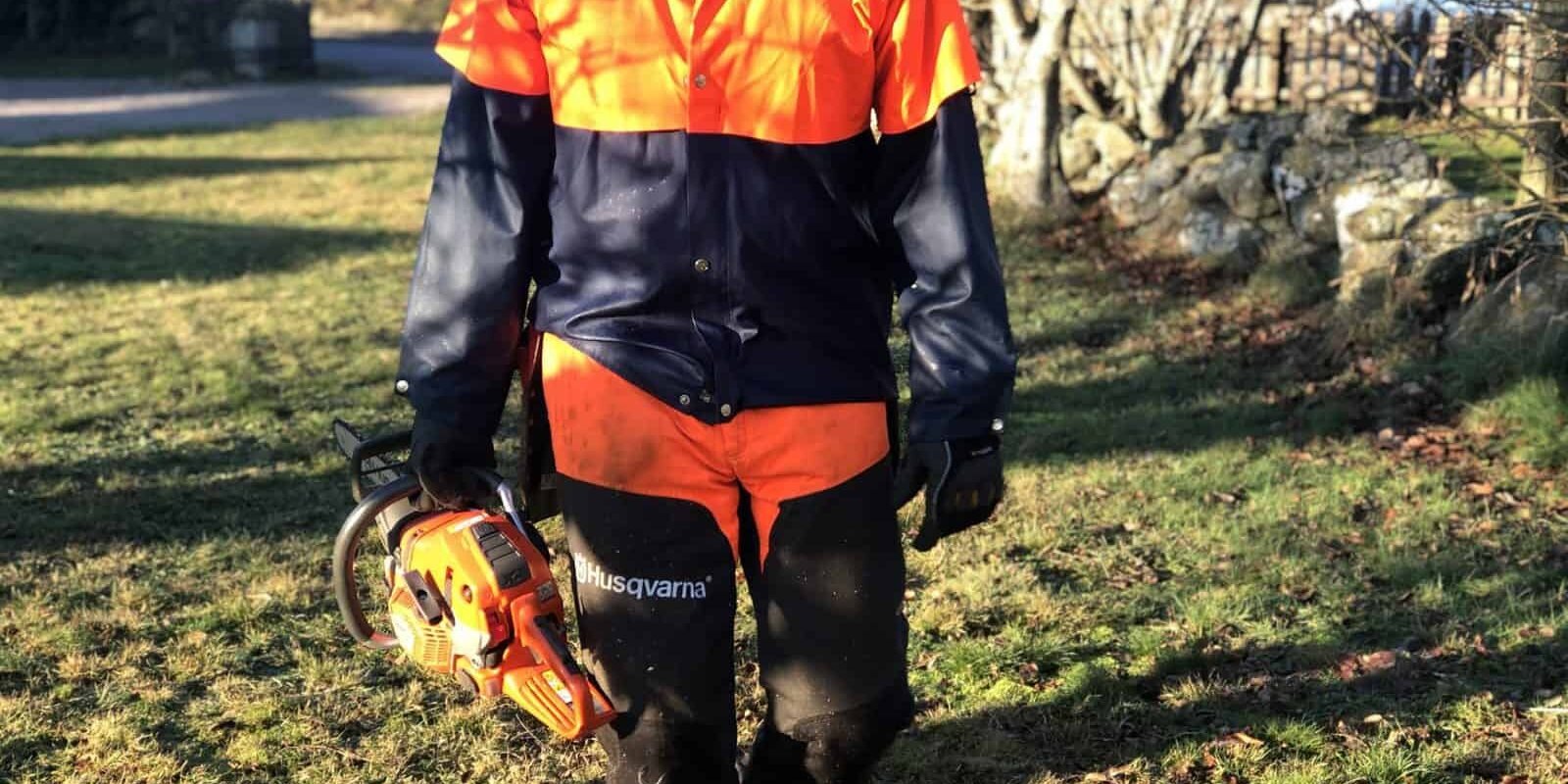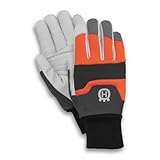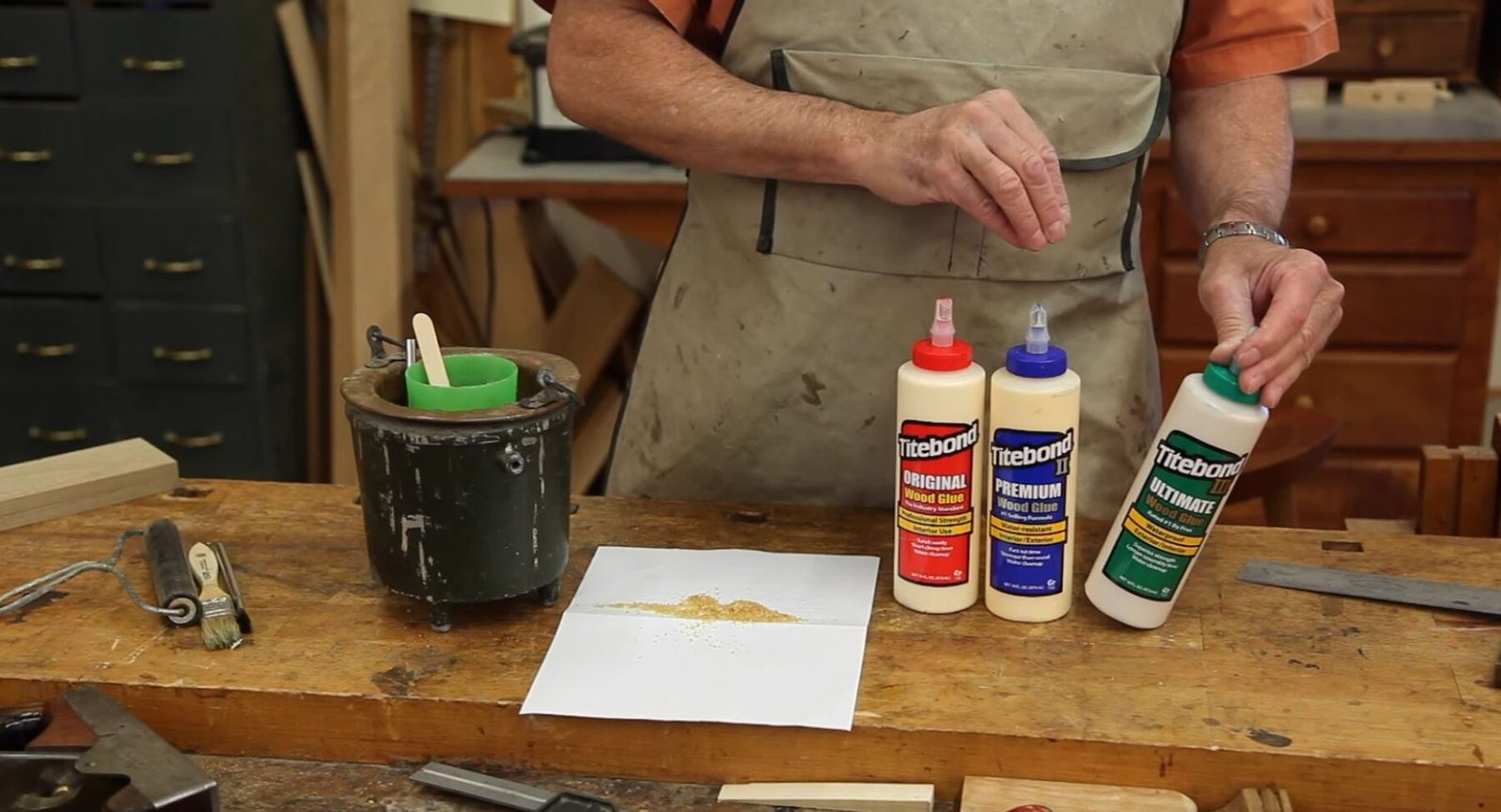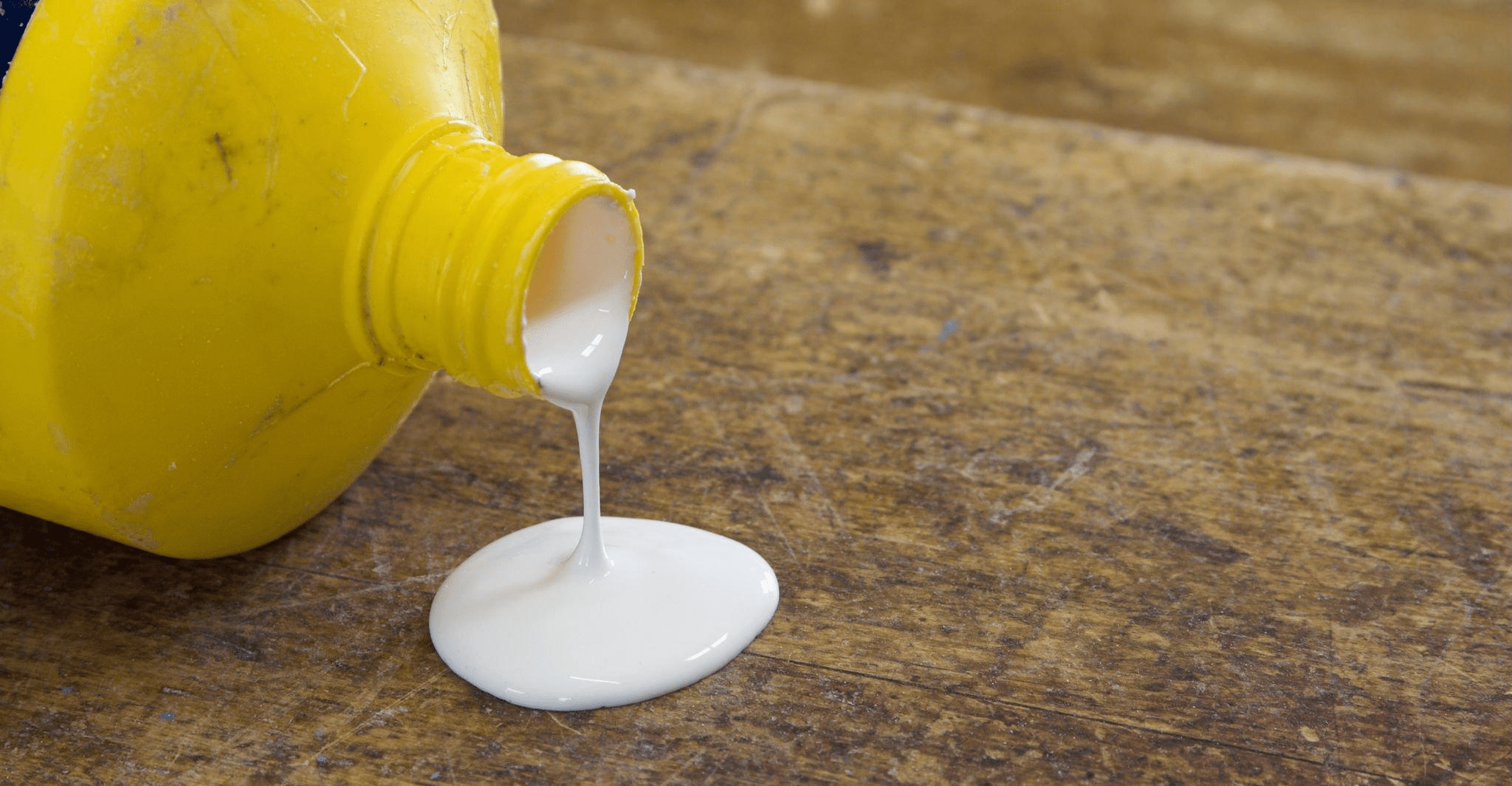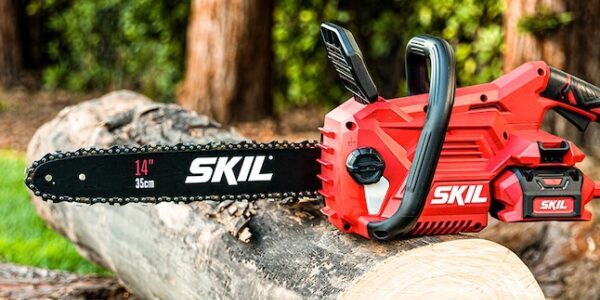When using a chainsaw, safety is key. There is always a risk of being injured while using a chainsaw, even for very experienced users. There are many types of protective gear and clothing and all have different types of functionality, so it is important you pick the right gear.
Get help from a knowledgeable person in the area to find clothes that fit really well so that the equipment fits correctly and does its job. The types of clothing that are suitable may also depend on the season and area of use.
Should the clothes have been damaged or are worn out , they need to be replaced in order to guarantee the safety of the user.
Here are the 10 most important garments / equipment needed when using a chainsaw:
1. A good safety helmet
When using the chainsaw, it is important to always have a proper safety helmet. There is always a risk that loose branches of different sizes will fall down while you are cutting. A large branch can make you unconscious in the worst case.
The helmet also needs a visor that provides good visibility but protects small chips from getting into the eyes. It is important that the visor is really wide so that it goes far down towards the neck and both sides.
The helmet should be adjustable so that it can be easily adjusted to the user.
It should also have good ventilation so that it does not become completely stuffy and sweaty at once, then you would end up just not using it.
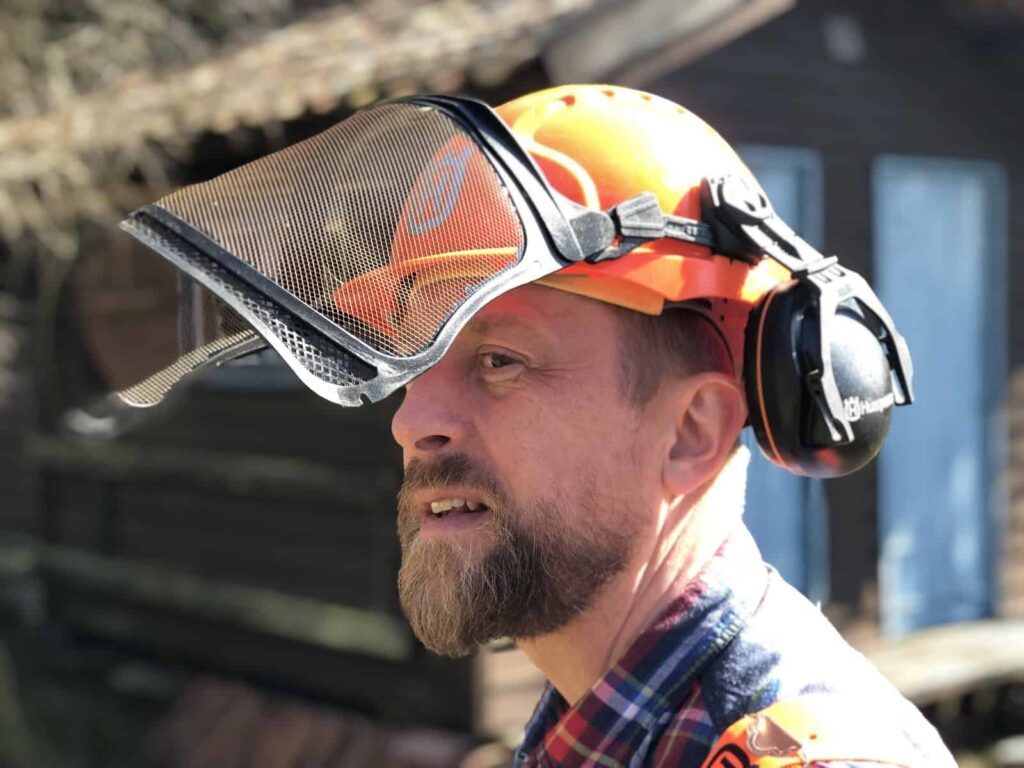
Protect your ears
A chainsaw has a loud sound so it is important to protect your hearing. Some safety helmets have built-in earmuffs, which makes it easy to fold up and down.
Otherwise, earplugs or ear muffs or the like are a must.
Many ear muffs today have a built-in radio and offer the possibility to connect the mobile so that you can hear if you get a call and also receive calls when needed.
If you use any kind of earplugs, it is important to check how many decibels they are made for, and they must not be too small and fit snugly in the ear.
2. Safety goggles
If the safety helmet does not have a visor or it is something that you absolutely do not like, there are safety goggles to use. Then it is important that the goggles are tight around the eyes so nothing can slip into the eyes.
There are both colored and uncolored glasses based on what you like best.
Colored glasses can be nice if it is really sunny and bright while uncolored can be an advantage if it is dark outside or starting to get dark
Always carry an extra pair of goggles in case a pair breaks. They do not take up much space and being able to change when needed is important.
3. Good protective gloves
Good protective gloves are needed if you are going to spend a whole day in the woods. If the hands get cold and wet, it becomes more difficult to handle the chainsaw. Therefore, look for gloves that can withstand some water and are soft and flexible.
The grip they offer is also important to keep in mind so as not to risk the chainsaw slipping out of your hands and causing an accident because of it. If it is during the colder season, it is also nice if there is some elastic band on the glove, then cold air is prevented from slipping into the glove.
In summer, it can be nice with much thinner gloves that do not get too hot, but breathe and maintain a comfortable temperature.
4. Real safety boots
The feet must be protected from the chainsaw and from getting wet from moisture. Therefore, the boots need to have approved saw protection, they must withstand and hold if the chainsaw gets to them.
Steel cap that strengthens the entire sole makes the boot more stable and longer lasting. Over the toes and the front of the foot is recommended. If you drop a log or something heavier, it protects for a long time.
There are both lined and unlined boots based on how and when they should be used.
In winter, it is always possible to add an extra sole when needed, which keeps the feet warm. Some models are unstudded, others are dubbed and some can be dubbed as needed.
Protective boots instead of boots
Boots offer protection over a larger area on the leg, but if you absolutely do not like it, there are also safety boots to choose from. They can have the same properties as boots and it is a lot about finding the boots that fit the needs you have.
Ordering boots or boots can be very difficult and therefore it is good if you try on a store to get a sense of how they sit on the foot. They should not be too big or too small because you should be able to walk steadily in the forest.
Real insoles
Regardless of the type of footwear you choose, it is important to keep your feet really warm and comfortable. There are insoles to tuck into their shoes. The more advanced ones can control how hot you want them to be with a remote control.
If you just want a little warmer or extra support, there are many soles to either add extra or replace the existing ones with. Many soles today can be cut and shaped to fit the shoes they are to sit in.
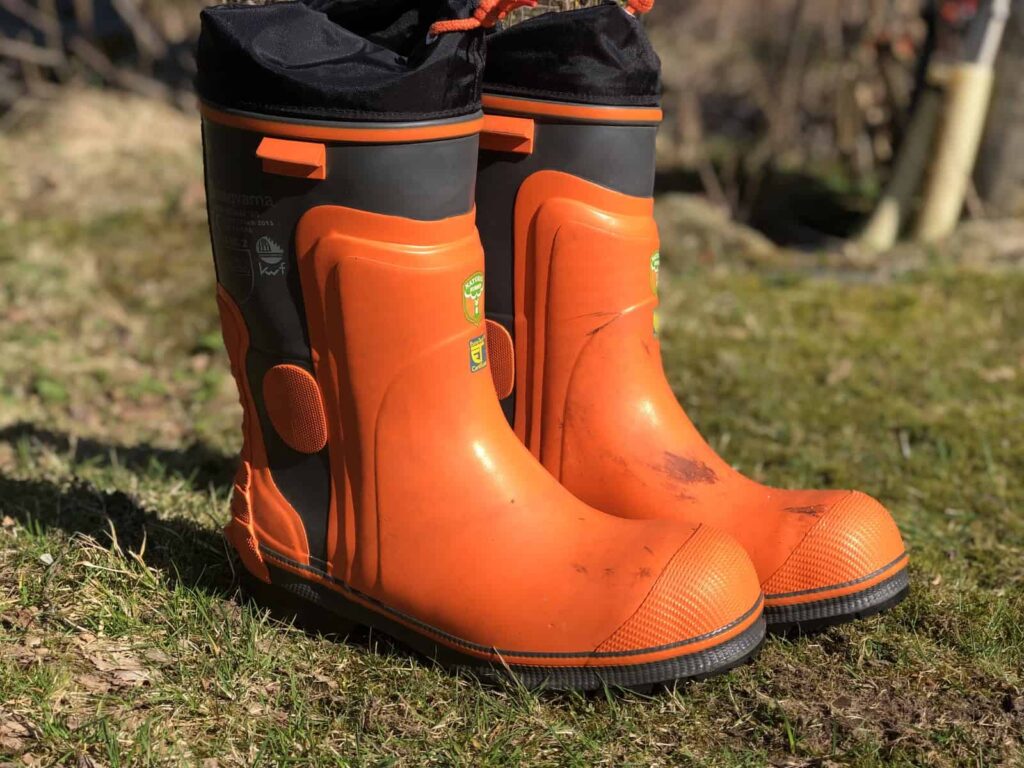 Husqvarna’s classic boots can be found on Amazon
Husqvarna’s classic boots can be found on Amazon
5. A jacket that protects
Find a jacket that protects. It is reinforced on exposed parts of the body and helps to keep the body warm while transporting away moisture in an efficient way.
Many models have zippers where it is possible to open and close when needed to regulate heat.
Padding in special places makes the work with chainsaws less stressful for the body.
Keep in mind that if there are pockets on the jacket, it is a great advantage if they can be reached even when you have the harness for the chainsaw on.
If the jacket has reflectors on it, it is a big plus that makes you more visible in the dark.
6. Real protective trousers
Protective trousers must be adapted for use by chainsaw users. They have reinforcements on the knees and lower part of the trouser legs. Should the chainsaw slip and hit, the protection should stop the blade from going through the pant leg.
Should the trouser leg be exposed to damage, any tear or the like, they need to be replaced to be able to guarantee adequate protection. The pants should not be too big or too small, but it is important that they have a really good fit.
Suspenders for protective pants
The pants need to remain in place throughout the day and then a pair of garters can be very helpful. If you bend down, cold air should not be able to slide in. If you have become a little sweaty, the air will cool down the skin very quickly.
The braces also prevent the pants from slipping down and fitting poorly. It can be a nice extra support so that both hands are free and you do not have to go and pull up your pants all the time.
Models on suspenders can vary a bit from different manufacturers and it can be good to try out what you like. Some models have a cross in the back and others run linear.

7. Head protection
A protection that sits in the neck and prevents from the sun, snow, small sticks and the like from entering.
If you stand and chop and get a lot of snow that falls down your neck, you can involuntarily snatch even a chainsaw in your hand, it can be devastating.
There are helmets where it is possible to attach neck protection and other models where you can put the protection loose on the outside of your jacket. Here you have to try to try and find what feels most comfortable.
8. Underwear that breathes
Layer on layer is the classic way to dress to stay warm effectively. If it is cold, it can be nice with a real undergarment that keeps the body warm but at the same time transports away moisture.
There are many types of underwear that are made in different materials.
This can be about personal opinions but also material based on weather and temperature. Read more about what the material has for properties and have more than one set at home.
Be sure to always hang the base to dry after use and make sure it is always completely dry during use.
9. Lined vest
A lined vest can be nice on the outside of an undershirt. This means that the arms are relatively free and the freedom of movement is greater. The vest that sits close to the body helps to keep warm and is still easy to wear.
If the body needs more warmth, it is possible to have an extra t-shirt or similar under the vest that you are comfortable with. This way, it is easy to both put on more clothes and take off if it gets too hot.
10. A warm hat
The head is the part of the body where a lot of heat goes straight out and a helmet is not always enough during cold winter days.
There are then thin hats that fit under the helmet that help keep warm.
If you take a break, it is good to have a thicker hat that can be used.
When you use a chainsaw, you get hot and sweaty and therefore risk becoming very cold when you stop. By having extra clothes with you, you minimize the risk of getting very chilled.
Buy used clothes
You can find some used protective clothing to buy for those who wish. It is then important to look carefully at the condition of the clothes. Do they look whole and clean and how old are they? Age affects clothes and can contribute to wear and tear.
If the clothes have been used a lot or have visible scratches, it is not recommended for use. That damage may prevent them from protecting as intended.
First aid
Protective clothing is always important when using a chainsaw, but there should always be a first dressing as a natural element when using it. Make sure it is always up to date and close at hand.
Have a simpler first dressing in a pocket on a jacket or pants and a more comprehensive one that is included in a bag nearby.
When retailers talk about protective clothing, you can also ask the question of good protective equipment and what is recommended. It can save lives.
Always go through what the first dressing contains and supplement with extra accessories if necessary.
Eye wash is an example of something that can be good to take with you if something gets into your eyes.
Lots of reflexes
Many of the protective clothing on the market today has reflectors built-in, but should this not be the case, it is good to wear extra reflectors.
It can be anything from a reflective vest to reflectors that you attach to arms and legs on the outside of clothes.
In this way, you become visible in the forest and easy to see for others, which is especially important if there are several people chopping and felling trees. If there are others moving in the area, it is good to show where you are.
Protective clothing that you are happy with
Protective clothing is a very individual choice, it is important that they fit well on the body and that you yourself feel that they work well and move around.
If freedom of movement is hindered, it will be difficult to clear and fell trees.
Try on the clothes and get help from those who work with it. There you can learn a lot and get good tips and advice.
It can be expensive to buy a brand new wardrobe with protective clothing but worth every penny when used.
Safety is not something you should take a chance on but be really careful with.
Buy new ones afterwards
Do not leave protective clothing too old or worn as it reduces its function and how much they protect the body. Be careful not to think about how much it costs but instead think about safety.
If you are injured by sawing yourself in the leg or the like, you will definitely regret that it was not updated clothes that you used. After each use, it is therefore good to review the condition of the clothes.
Should shoes or helmets be damaged, it does not mean that the entire set of clothes needs to be bought again, but it is then possible to only replace the damaged part of the clothes.

